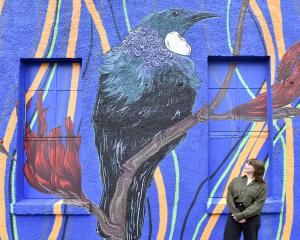"If I leave the property an alarm goes off. It's a bit degrading and it's terribly frustrating, but it's better than being in jail," he laments.
The South Africa-based scientist was convicted in October of aiding the death of his terminally-ill mother, Dunedin doctor Patricia Elizabeth Davison (then 85), in a cause celebre which ignited debate on voluntary euthanasia.
Davison was charged with attempted murder after he wrote a book, Before We Say Goodbye, mentioning how he administered morphine to his mother before she died of cancer in Dunedin on October 24, 2006.
He later pleaded guilty to an amended charge that he "counselled and procured" his mother to commit suicide.
He was convicted and sentenced to five months' home detention, to be served at a friend's Kaikorai address.
Two months into his sentence, Davison yesterday remained unrepentant.
"I acknowledge that assisting my mother's suicide was illegal. Yes, I broke the law. But, I believe I was not judged for what I did; I was judged for writing a book and telling the truth.
"My sole reason for being there was to keep her alive and make her as comfortable as possible. She kept saying: `Help me to die'. She just wore me down. I believe any humane person would have done what I did if faced with the same circumstances.
"She was a doctor and she was desperate to die. She went on a hunger strike, because she thought it would work. If I committed a crime, it was a crime of compassion to help my mother."
Davison said it was "a huge shock" when he was arrested, but he bore no malice to the police for pursuing the investigation, or the judge for convicting him.
"It is their job to uphold the rule of law and I respect that. I spent a year knowing there was a chance I could go to jail. I was always mentally prepared for the outcome. I know that when morality and the law collide, morality will always come out worse.
"But, I believe the present law has been exposed in my trial and it stands guilty in the name of justice and humanity. There are many people who have had similar experiences to the one I had. The only difference between my experience and theirs is that I wrote a book about mine. It is time that the law was changed to stop making criminals out of non-criminals."
Davison's partner, Raine, and children, Flynn (3) and Finnian (1), have been waiting for his return to Cape Town since he was sentenced in the High Court at Dunedin on October 27 last year.
"I'm a private, quiet person and I wanted to be dignified. But it has been a terrible toll on my family back home.
"Hopefully, my unfortunate situation can help bring about some good. If there is no law change, people will continue to have dreadful, undignified deaths, similar to my mother's, and family members who assist in the death of a loved one will continue to face significant legal consequences.
"I've got a platform now, as a result of the trial, and it would be cowardly to walk away."
He will complete his sentence on April 25.
Dunedin voluntary euthanasia support group Exit International convener Paula Westoby said Davison made "a brave stand against a terrible law ... What a lot of people don't realise, is that euthanasia is simply the Greek word for 'a good death'."













